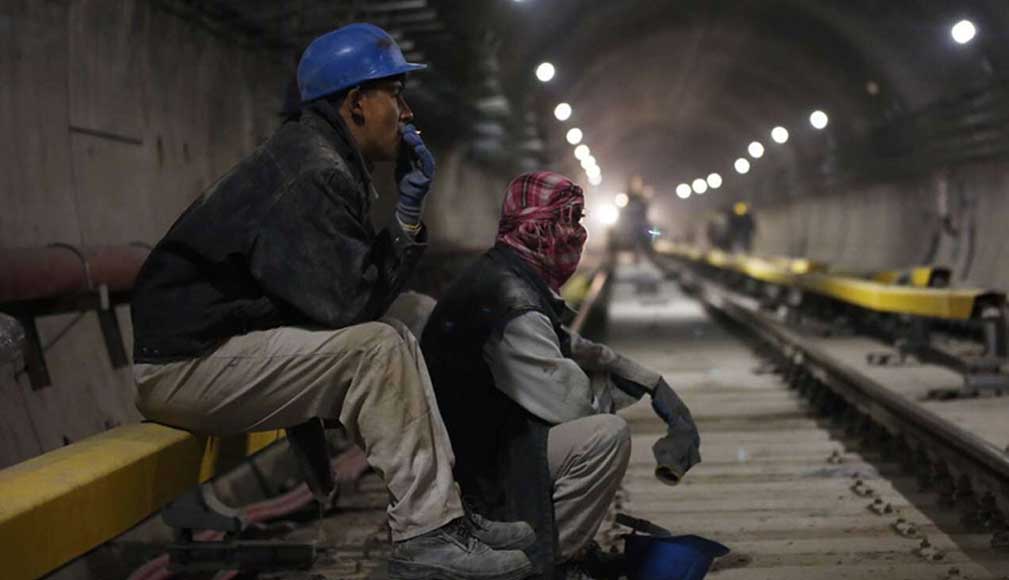By Kayhan Life Staff
A large segment of the Iranian labor force is at risk of losing their livelihood, according to Naser Chamani, the head of the Supreme Association of Workers Unions.
Mr. Chamani made the remarks in an interview with the Tasnim news agency on Sept. 23.
“There was a time when workers could make ends meet, albeit with great difficulty,” Chamani said. “However, they are at risk of losing their livelihoods. This is a life or death situation for many of them. They could barely manage before, but the government’s actions have now made it next to impossible for workers to survive.”
In its January report, the UN Labor Organization (ILO) ranked Iran as having one of the lowest national minimum wages in the region. It said Iran paid its workers even less than Venezuela did.
The ILO’s guideline defines the minimum wage as “the amount of remuneration that an employer is required to pay wage earners for the work performed during a period which cannot be reduced by collective agreement or an individual contract.”
“The government must improve the situation for workers,” Chamani argued. “The situation is so critical that even the Supreme Leader [Ayatollah Ali Khamenei] called for a reform in the labor laws earlier this year. We are trying to improve the livelihoods of our workers.”
“In a letter to the Majlis’ [Iranian Parliament] Committee on Social Affairs, we called for a comprehensive review of the national minimum wage and the national living wage. We hope the committee reply to our letter soon,” Chamani noted. “Many employers offer only excuses for not increasing wages. Most of them have been making more money, given the increasing prices of goods and services. However, businesses do not pass on the profits to their employees.”
[aesop_image img=”https://kayhanlife.com/wp-content/uploads/2020/06/2004-08-12T000000Z_1158320580_RP5DRIAPTQAA_RTRMADP_3_IRAN-STEEL.jpg” panorama=”off” credit=”FILE PHOTO: Two Iranian workers are seen at the Steel Saba Complex in Isfahan province 451km south of Tehran. REUTERS/Morteza Nikoubazl ” align=”center” lightbox=”on” captionsrc=”custom” captionposition=”left” revealfx=”off” overlay_revealfx=”off”]
“Many employers believe that higher wages would push inflation,” Chamani said. “However, refusing to increase workers’ wages has not prevented double-digit inflation. It is only an excuse used by business owners and employers to keep wages down.”
“Employers also argue that raising wages above the inflation rate would cause high unemployment. They are wrong. Increasing wages above the inflation rate has resulted in a higher employment rate in the past few years,” Chamani argued. “It has risen the number of workers who have successfully got national insurance. So, the experience has shown us that employers have been using inflation as an excuse for not increasing wages.”
“We expect the Majlis to address the dire situation facing the labor force. There are some 14 million workers in the country who are struggling to make ends meets. It is a life or death situation for them,” Chamani added.
Speaking at an open session of the Majlis on Sept. 20, Ali Babaei, the spokesman for the Majlis’ Committee on Social Affairs, said most of the country’s labor force lived under the poverty line.
“We ignore the fact that workers are at the forefront of manufacturing and production sectors,” the government’s Icana News Agency quoted Mr. Babaei as saying. “However, we know that the country’s labor force is shrinking, and the crippling economic sanctions threaten the livelihoods of our workers.”
[aesop_image img=”https://kayhanlife.com/wp-content/uploads/2018/10/kamiondaran_1.jpg” panorama=”off” credit=”FILE PHOTO: Truckers strike. The banner says : ‘Workers, teachers our pain is also yours. Our success depends to your support.’ Source: Kayhan London” align=”center” lightbox=”on” captionsrc=”custom” captionposition=”left” revealfx=”off” overlay_revealfx=”off”]
“Most if not all of the country’s workers live under the poverty line,” Babaei noted. “They are having a tough time making ends meet, given the high cost of living. They cannot buy even life’s essentials. We must give priority to helping this segment of our society.”
“Many countries face a wide range of problems, including war, political challenges, and sanctions, but they are not plagued with hyperinflation as we are,” Babaei explained. “Undoubtedly, sanctions have affected a segment of the country’s production capability and harmed our economy. However, we cannot ignore mismanagement and hyperinflation in our country.”
“Blaming the sanctions for the current hyperinflation is a way of avoiding the issue. It will be a massive mistake if we cannot find a workable solution to this problem,” Babaei added.
Earlier this year, the Supreme Labor Council (SLC), which operates under the Ministry of Labor and Social Affairs auspices, set the minimum wage for workers at $595 a month. After widespread protests by workers, the government increased the amount to $642 in line with the increased housing cost.
[aesop_image img=”https://kayhanlife.com/wp-content/uploads/2018/09/2007-05-01T120000Z_791919813_GM1DVDWDWTAA_RTRMADP_3_IRAN.jpg” panorama=”off” credit=”FILE PHOTO: An Iranian worker holds a placard that reads: ‘Salary 10% Inflation 100%’ during a Labour Day rally in Tehran. REUTERS/Caren Firouz ” align=”center” lightbox=”on” captionsrc=”custom” captionposition=”left” revealfx=”off” overlay_revealfx=”off”]
Most workers in the manufacturing, construction, and various industries, who receive a minimum wage, are also entitled to housing and child benefits, which raise their monthly income to $667.
According to SLC, the absolute poverty line in Iran — which is an improved index of poverty (compared to extreme poverty) — is $1,784 for a three- to four-member household. The data shows that a family of four can live for less than two weeks on those wages.
Trade union federations across the world, including the International Trade Union Confederation (ITUC), try to align the national minimum wage and the national living wage in their negotiations, the latter being what people need to make ends meet.
This article was translated and adapted from Persian by Fardine Hamidi.








